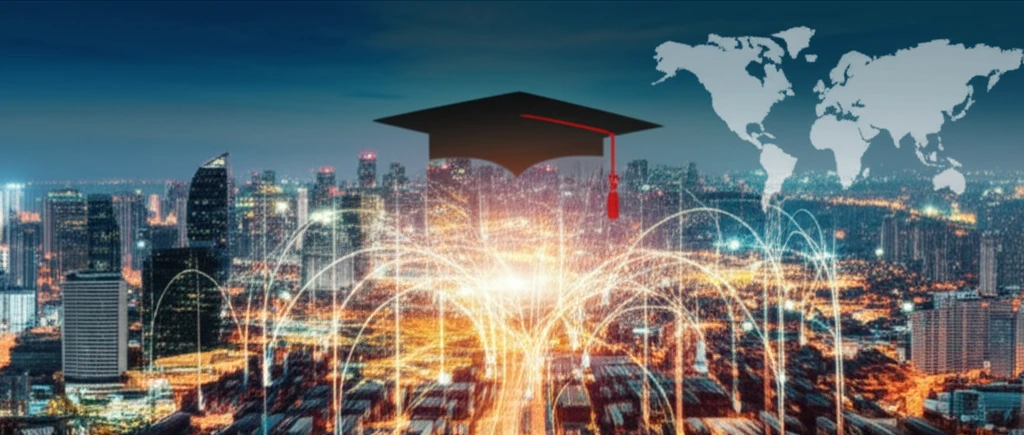
Unlocking Economic Growth: How Trade and Human Capital Drive Asian Economies
"Discover the impact of foreign trade and human capital on economic growth in Asian countries, and what it means for the region's future."
Economic growth is a crucial indicator of a country's progress, making it a top priority for economists and politicians. Identifying the key factors that drive this growth is essential. Since the mid-1980s, the study of economic growth determinants has become a major research area, driven by the potential to improve living standards, reduce poverty, and lower unemployment.
Many economists view international trade as a powerful engine for growth and societal development. They believe that engaging in international trade, based on comparative advantages, allows countries to leverage their economic strengths and attract investments. Open economies benefit from access to foreign markets, advanced technologies, and diverse resources, all of which contribute to economic expansion.
Another critical factor influencing economic growth is human capital—the skills, knowledge, and experience possessed by a workforce. In today's world, countries are focused on enhancing the quality of their human resources. Education and skill levels are key determinants of a nation's technological advancement and competitive edge, enabling the production and export of high-value goods. Continuous education and skill development are essential to foster innovation and adaptability.
The Interplay of Trade and Human Capital

The relationship between foreign trade and economic growth has been a subject of ongoing debate, even amidst increasing liberalization over the past 30 years. This analysis examines the impact of foreign trade and human capital on the economic growth of Asian countries, using panel data from 1990 to 2014.
- Trade Boosts Growth: Increased trade and imports provide access to new markets, technologies, and resources, fueling economic expansion.
- Human Capital Matters: Investments in education, skills, and training enhance workforce productivity and innovation, driving economic growth.
- Combined Effect: The synergy between trade and human capital creates a powerful engine for sustainable development.
Strategic Implications for Asian Economies
Foreign trade, by facilitating economies of scale, advanced technologies, and resource allocation, can significantly enhance production efficiency and drive economic growth. Attracting advanced technologies through trade and ensuring their compatibility with domestic conditions requires investment in human resources and skilled labor.
The study's results emphasize that trade and imports have a positive impact on economic growth in Asian countries. Similarly, human development components also contribute positively to economic growth, highlighting the importance of investing in education and skills training.
To maximize economic potential, Asian countries should prioritize policies that promote trade liberalization, invest in human capital development, and foster an environment conducive to innovation and technological adoption. By strategically leveraging both trade and human capital, these nations can pave the way for sustained and inclusive economic growth.
